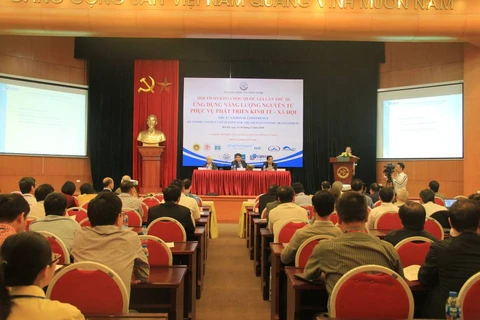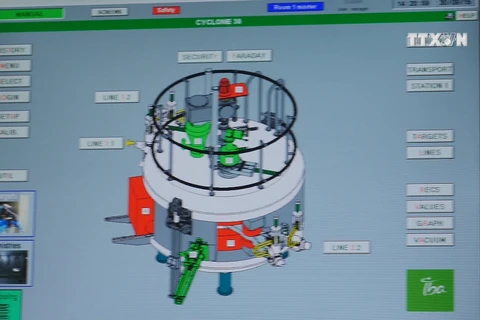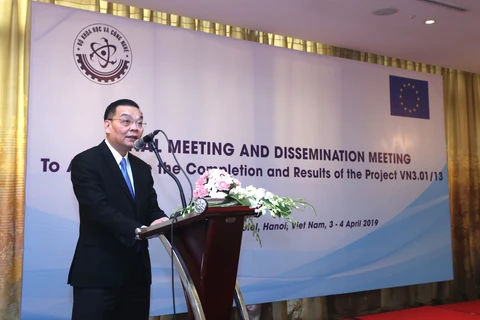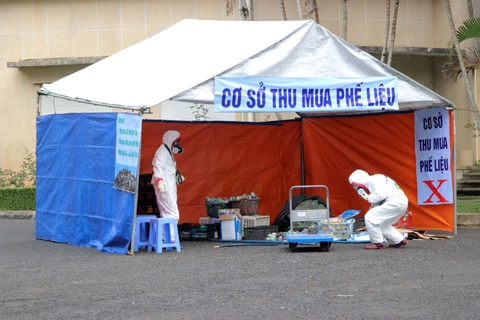 The 2nd Vietnam conference on advanced radiation technology takes place in HCM City on October 17 (Photo: VNA)
The 2nd Vietnam conference on advanced radiation technology takes place in HCM City on October 17 (Photo: VNA) HCM City (VNA) - Better cooperation is needed between domestic and international agencies, organisations and enterprises in the development of advanced radiation technologies, Hoang Anh Tuan, Director of the Vietnam Atomic Energy Agency said at a conference on atomic energy held in HCM City on October 17.
Tuan said that research and development in radiation technology in Vietnam had achieved positive results in the fields of medicine, industry, agriculture and environment.
The country has eight irradiation facilities and 11 industrial irradiators, including one X-ray accelerator and one electron beam (EB) machine. Another facility is under construction in Bac Ninh province.
One of the key tasks is to access atomic energy use for socio-economic development, Tuan said, adding that identifying challenges and solutions would help the development of radiation technology in Vietnam.
Nguyen Van Quan, from the Ministry of Health’s Administration of Science Technology and Training, pointed out several limitations that still exist in the application of radiation technology in the medical field.
There is a lack of qualified human resources, irradiation facilities and machines, and facilities providing radioactive medicine, he said, suggesting universities and higher education institutions add new majors related to atomic energy in the next academic period.
New policies to develop the use of irradiation technology need improved collaboration between ministries and other sectors, he said.
The International Atomic Energy Agency (IAEA)'s 171 member states promote safe, secure and peaceful nuclear technologies, according to Bum Soo Han from the IAEA’s Department of Nuclear Science and Applications.
There still exists a gap between member states in implementation of radiation-based techniques, he said.
The IAEA helps member states strengthen their capacities in adopting radiation-based techniques through its technical cooperation programmes, coordinated research projects, consultants, and technical meetings and conferences.
It supports cleaner and safer industrial processes, and offers a wide spectrum of education and training activities.
Education and training are necessary to ensure that the next generation of nuclear industry professionals is prepared to manage complex radiation technology programmes, he said.
Every four years, the IAEA organises an international conferences on radiation science and technology application at its headquarters in Vienna, Austria that highlight the latest key developments in the field./.
VNA























